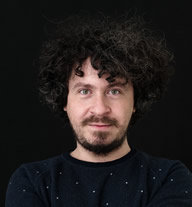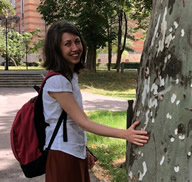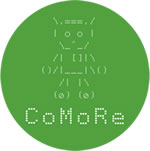 Cristina Voinea is Assistant Professor at the Department of Philosophy and Social Sciences, Bucharest University of Economic Studies and a research fellow at the Research Centre in Applied Ethics (CCEA), University of Bucharest.
Cristina Voinea is Assistant Professor at the Department of Philosophy and Social Sciences, Bucharest University of Economic Studies and a research fellow at the Research Centre in Applied Ethics (CCEA), University of Bucharest.
She received her PhD in 2019 from the University of Bucharest, Department of Philosophy, with a thesis on the politics of the internet, where she studied how private and state power shape the global landscape of internet governance.
Cristina explores how technologies, and in particular the internet, influence our moral lives and her papers were published in journals such as Science and Engineering Ethics, Technology in Society or Public Reason. Full CV here (in English).
Within the CoMoRe project Cristina investigates the concept of collective moral responsibility and how it can be applied in the context of the development and deployment of artificial systems, so as to cover all the stakeholders involved e.g., human programmers, technicians, users.
 Radu Uszkai is Assistant Professor at the Department of Philosophy and Social Sciences, Bucharest University of Economic Studies, and a member of the Research Centre in Applied Ethics (CCEA) and the Romanian Young Academy (RYA). He is mainly interested in moral and political philosophy and philosophy and pop culture. Radu has published several papers on roboethics, the ethics of intellectual property rights, business ethics and classical liberalism, etc. in journals such as Libertarian Papers, Revue Roumaine de Philosophie or Információs Társadalom and in edited volumes released at Open Court Publishing or Bloomsbury. Full CV is available here (in English).
Radu Uszkai is Assistant Professor at the Department of Philosophy and Social Sciences, Bucharest University of Economic Studies, and a member of the Research Centre in Applied Ethics (CCEA) and the Romanian Young Academy (RYA). He is mainly interested in moral and political philosophy and philosophy and pop culture. Radu has published several papers on roboethics, the ethics of intellectual property rights, business ethics and classical liberalism, etc. in journals such as Libertarian Papers, Revue Roumaine de Philosophie or Információs Társadalom and in edited volumes released at Open Court Publishing or Bloomsbury. Full CV is available here (in English).
Within the CoMoRe project he is interested in evaluating whether artificial systems can bear any moral responsibility and exploring the implications of collective moral responsibility for their deployment and use in various social contexts.
 Constantin Vică is Lecturer at the Faculty of Philosophy and Deputy Director of the Research Centre in Applied Ethics (CCEA), University of Bucharest. His main fields of interest are computer and information ethics, AI ethics, philosophy of computer science, and social and political philosophy. He has published several articles and studies on internet ethics, intelligent assistive technologies, medical technologies and bioethics, etc. in journals such as Science and Engineering Ethics and International Journal of Social Robotics. Full CV here (in Romanian).
Constantin Vică is Lecturer at the Faculty of Philosophy and Deputy Director of the Research Centre in Applied Ethics (CCEA), University of Bucharest. His main fields of interest are computer and information ethics, AI ethics, philosophy of computer science, and social and political philosophy. He has published several articles and studies on internet ethics, intelligent assistive technologies, medical technologies and bioethics, etc. in journals such as Science and Engineering Ethics and International Journal of Social Robotics. Full CV here (in Romanian).
Within the CoMoRe project he is interested in analyzing the political and methodological collectivism of AI development, the coding of (neo)Aristotelian moral theories, and the moral evaluation of the relationship between children and robots.
 Mihaela Constantinescu is Associate Lecturer at the Faculty of Philosophy, University of Bucharest, and Executive Director of the Research Centre in Applied Ethics (CCEA). A former postdoctoral fellow of the Research Institute of the University of Bucharest (ICUB), Mihaela is currently a member of the Romanian Young Academy (RYA). Her research interests include virtue ethics, business ethics, and philosophy of technology, with academic papers published in journals such as Business Ethics, the Environment and Responsibility and Journal of Business Ethics, as well as in edited volumes released at Edward Elgar, Springer or DeGruyter. She is co-author of the book “Institutionalizing ethics: mechanisms and instruments” (in Romanian). Before moving to academia, Mihaela has worked as a communications consultant in the private, governmental and NGO fields and is co-founder of the Association for Education in Socio-Humanities (ESSU).
Mihaela Constantinescu is Associate Lecturer at the Faculty of Philosophy, University of Bucharest, and Executive Director of the Research Centre in Applied Ethics (CCEA). A former postdoctoral fellow of the Research Institute of the University of Bucharest (ICUB), Mihaela is currently a member of the Romanian Young Academy (RYA). Her research interests include virtue ethics, business ethics, and philosophy of technology, with academic papers published in journals such as Business Ethics, the Environment and Responsibility and Journal of Business Ethics, as well as in edited volumes released at Edward Elgar, Springer or DeGruyter. She is co-author of the book “Institutionalizing ethics: mechanisms and instruments” (in Romanian). Before moving to academia, Mihaela has worked as a communications consultant in the private, governmental and NGO fields and is co-founder of the Association for Education in Socio-Humanities (ESSU).
Mihaela is Principal Investigator of the national research grant on “Collective moral responsibility: from organizations to artificial systems. A re-evaluation of the Aristotelian framework” (CoMoRe), jointly carried out at CCEA and ICUB within the University of Bucharest. Her focus within the CoMoRe project is on the normative interplay of the concepts of collective moral responsibility and moral agency in relation to individuals, organizations and AI.
News
Contact
Research Center in Applied Ethics
Faculty of Philosophy, University of Bucharest
Splaiul Independenţei, No. 204,
Bucharest, 060024, Romania

